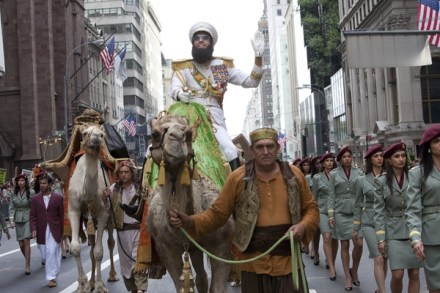Tough at the top
CinemaThe first thing you should know is that I love, adore and worship Sacha Baron Cohen and have this fantasy whereby we get married and set up home in Notting Hill as a power couple and when the phone rings and it’s Richard Branson I will say, ‘I’m so sorry, Dick, but we can’t come













